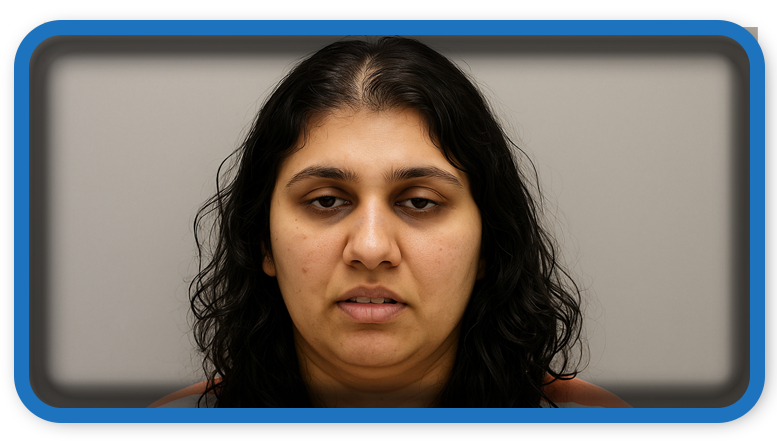⏲️ Estimated reading time: 4 min
A Tragedy of Silence and Struggle
On a summer evening in 2010, Texas emergency responders picked up a chilling 911 call. A woman confessed to killing her two children. That woman was Saiqa Akhter, a Pakistani-American mother who, in a harrowing act of desperation, ended the lives of her 5-year-old son and 2-year-old daughter. Her story represents a tragic symbol of untreated mental illness, cultural isolation, and the pressure many mothers endure in silence.
Who Was Saiqa Akhter?
Saiqa Akhter, a 30-year-old mother, lived in Irving, Texas, with her husband and two children. Originally from Pakistan, she moved to the United States seeking a better life. Like many immigrant mothers, she faced cultural expectations, family responsibilities, and the complexities of raising children far from her support system.

Her son, Zain, received an autism diagnosis, and reports indicate that she struggled deeply with feelings of shame and isolation surrounding his condition. Her daughter, Faryaal, was a toddler with no known health issues.
The Night of the Tragedy
On July 20, 2010, Saiqa called 911 and calmly told the dispatcher she had strangled her two children. When asked why, she explained her fear that they would become “like her son” and said she felt overwhelmed. She first attempted to make them ingest bathroom cleaner but resorted to strangulation when that failed.
Police arrived and found both children unconscious. Faryaal died at the scene. Emergency services transported Zain to a hospital, where he died the next day.
The Mental Health Crisis
In the aftermath, questions emerged: Why did no one intervene? How could a mother commit such an act? The answers reveal a mental health crisis that often remains unnoticed, especially within immigrant families.
Saiqa expressed suicidal thoughts and felt overwhelmed by her responsibilities. Cultural stigma surrounding mental health in some South Asian communities likely stopped her from seeking help. In her confession, she showed remorse but also a tragic belief that she was “saving” her children from suffering.
Legal Proceedings and Sentencing
Authorities charged Saiqa Akhter with capital murder. In 2013, she received a life sentence without parole after pleading guilty to avoid the death penalty. Psychiatrists testified that she suffered from schizoaffective disorder and experienced hallucinations. Despite this, the court ruled her competent to stand trial.
Her case sparked controversial debates about mental illness, parental responsibility, and criminal justice. While some labeled her a monster, others viewed her as a severely ill woman whom the system had failed.
Societal Pressure and Cultural Silence
Saiqa’s story highlights the crushing burden some mothers silently carry. In many cultures, women are expected to be flawless caregivers. When a child is neurodivergent or when parenting becomes overwhelming, support remains scarce and shame widespread.
Within immigrant communities, the stigma surrounding autism and mental health is deeply ingrained. Saiqa’s inability to cope worsened due to a lack of awareness, education, and accessible mental health services.
What We Can Learn
The Saiqa Akhter case powerfully reminds us of the urgent need for mental health support particularly for mothers under extreme stress. It also underscores the value of community education around autism and developmental disorders.
Rather than casting judgment, society must prioritize early intervention, establish support networks, and ensure culturally sensitive mental health resources are available to all.
Remembering the Victims

We must not forget Zain and Faryaal, two innocent children whose lives ended too soon. They were victims not just of a tragic act, but of a systemic failure that provided their mother with no support before it was too late.
The story of Saiqa Akhter disturbs and devastates. However, it also serves as a powerful call to action. As a society, we need to improve our understanding of mental illness, offer real support to parents in crisis, and break the silence around issues that, if ignored, lead to irreversible loss.
📩 Do you have questions or suggestions? Leave a comment or contact us!
🏷️ Tags: Saiqa Akhter, child murder, Texas tragedy, mental health crisis, autism parenting, immigrant struggles, schizoaffective disorder, mother kills children, crime and psychology, parental breakdown
📢 Hashtags: #SaiqaAkhter #MentalHealthAwareness #ChildTragedy #ParentingStruggles #AutismSupport #ImmigrantMothers #CrimeAndPunishment #TexasCrime #PsychologicalHealth #MotherhoodCrisis
Only logged-in users can submit reports.
Discover more from HelpZone
Subscribe to get the latest posts sent to your email.

